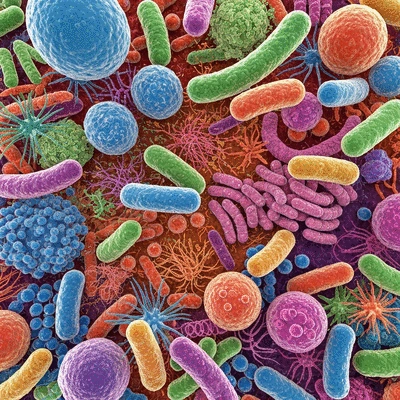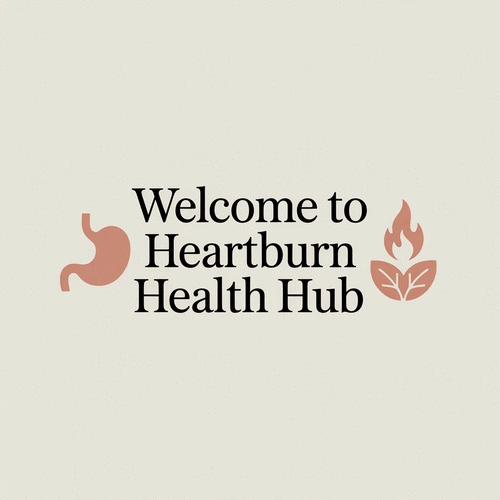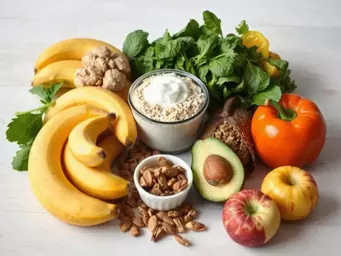What if the key to better digestive health lies within the trillions of microorganisms living in your gut? Understanding the gut microbiome could be the game-changer you've been looking for. Dive into the fascinating world of gut health and discover how to nurture your microbiome for enhanced wellness!
What You Will Learn
- The gut microbiome is a diverse ecosystem crucial for digestion, nutrient absorption, and immune function.
- Maintaining a diverse microbiome can improve digestion and enhance the body's ability to fight illnesses.
- Diet plays a pivotal role in shaping gut health; incorporating prebiotic and probiotic foods can support beneficial bacteria.
- Lifestyle choices, including hydration, sleep quality, stress management, and physical activity, significantly affect gut wellness.
- Recognizing food intolerances and their symptoms is essential for maintaining digestive harmony.
The Gut Microbiome: Key Components and Lifestyle Influences
This visual highlights the essential elements and contributing factors that shape a healthy gut microbiome, crucial for overall digestive wellness.
Diverse Microbial Species
A wide variety of bacteria, viruses, and fungi are essential for a robust gut microbiome.
Shaped by Genetics & Diet
Individual microbiomes are unique, influenced by inherited traits and food choices.
Nutrient Absorption & Metabolism
Microorganisms help break down food and synthesize essential vitamins like B12 and K.
Immune System Modulation
A balanced microbiome enhances immune response, protecting against infections and diseases.
Understanding the Gut Microbiome: A Foundation for Digestive Wellness
When we talk about digestive wellness, we can’t overlook the gut microbiome. It's a complex ecosystem of microorganisms living in our intestines, and understanding it is crucial for managing issues like heartburn and acid reflux. Did you know that these tiny organisms play a key role in breaking down food, producing vitamins, and even influencing our immune system? Let’s dive into what makes up this fascinating microbiome!
Defining the Gut Microbiome: What You Need to Know
The gut microbiome consists of trillions of bacteria, viruses, fungi, and other microorganisms. They are not just passengers in our digestive system but active participants in our overall health. Each person’s microbiome is unique, shaped by genetics, diet, and lifestyle factors. At Heartburn Health Hub, we believe that understanding your microbiome can empower you to make informed choices that support your digestive health.
- Composed of diverse microbial species
- Affected by diet, medication, and environment
- Vital for gut health and overall well-being
By learning about the gut microbiome, you can take steps to promote its health and, in turn, improve your digestive wellness. Keeping track of your daily habits can help identify what works best for you!

The Biological Complexity of the Gut Microbiome and Its Functions
Did you know that the gut microbiome performs functions beyond digestion? It helps in nutrient absorption, metabolism, and even synthesizing essential vitamins like B12 and K. This intricate system also protects against harmful pathogens and modulates inflammation, which is especially important for those of us dealing with digestive issues. Research highlights the critical role of gut microbes in host immunity and metabolism, underscoring their importance in maintaining overall health, as detailed in this Frontiers in Microbiology study.
Moreover, a balanced microbiome can enhance our immune response, making us less susceptible to infections and diseases. By nurturing our gut health, we can fortify our defenses against various digestive disorders!
The Importance of Gut Microbiome Diversity for Overall Health
Diversity within the gut microbiome is key to its functionality. A varied microbiome means a broader range of beneficial bacteria, which can improve digestion and enhance your body’s ability to ward off illnesses. The more diverse your gut flora, the better your digestive health can be! This diversity is crucial for metabolic balance and overall well-being, as further explored in a study on Frontiers in Microbiology regarding the gut microbiome's role in metabolic health.
- Promotes efficient digestion
- Reduces inflammation and discomfort
- Supports mental health through the gut-brain connection
To increase this diversity, consider incorporating a variety of foods into your diet, such as fruits, vegetables, whole grains, and fermented foods. Each food type supports different species in your gut, giving your microbiome the boost it needs!
The Role of Diet in Shaping Gut Health
Food is not just fuel; it's a critical factor in maintaining a healthy gut microbiome. The right dietary choices can significantly influence the composition and function of our microbiota. Let’s explore how what we eat affects our gut health!
Pro Tip
Did you know? Incorporating a variety of colorful fruits and vegetables into your diet not only enhances your gut microbiome diversity but also provides essential vitamins and minerals that support overall digestive health. Aim for a "rainbow plate" at every meal!
Enhancing Digestive Wellness Through Lifestyle Modifications
Enhancing your gut health is not just about what you eat; it’s about the lifestyle choices you make every day! At Heartburn Health Hub, we believe that small, actionable changes can lead to significant improvements in your digestive wellness. Let’s dive into some practical tips that can help you nurture your gut microbiome.
Actionable Tips for Improving Gut Health
Making a few adjustments to your daily routine can have a big impact on your gut health. Here are some actionable tips to consider:
- Stay Hydrated: Drinking plenty of water helps maintain the mucosal lining of the intestines and promotes the growth of beneficial bacteria.
- Prioritize Sleep: Quality sleep is essential for gut health. Aim for 7-9 hours of restful sleep each night to support your microbiome.
- Manage Stress: High stress levels can disrupt your gut balance. Try mindfulness practices such as yoga or meditation.
- Regular Physical Activity: Exercise can enhance gut health by promoting the movement of food through your digestive tract.
By incorporating these simple changes into your life, you can create a supportive environment for your gut microbiota to thrive! Remember, the relationship between your lifestyle and gut health is profound, so every little bit counts.

Incorporating Prebiotic and Probiotic Foods Into Your Diet
Both prebiotics and probiotics play critical roles in maintaining a healthy gut. Prebiotics serve as food for your beneficial gut bacteria, while probiotics are live bacteria that can provide health benefits. Here’s how to easily add them to your diet:
- Prebiotic Foods: Include foods like garlic, onions, bananas, and asparagus in your meals.
- Probiotic Foods: Enjoy yogurt, kefir, sauerkraut, and kimchi regularly for their gut-friendly bacteria.
- Daily Smoothie: Blend a mix of fruits with a scoop of yogurt to create a delicious and gut-nourishing drink!
Incorporating these foods can help maintain a diverse and robust gut microbiome, which is essential for overall health. As a gastroenterologist, I often see first-hand how dietary changes can lead to lasting improvements in digestive wellness! The positive effects of probiotics on gut microbiota and its metabolic activities are well-documented, as highlighted in this review on probiotics and their impact on gut health.
Understanding Food Intolerances and Their Effect on Gut Health
Food intolerances can wreak havoc on your digestive system and overall well-being. They can lead to discomfort like bloating and gas, affecting your gut health significantly. Here are some common signs of food intolerances:
- Frequent bloating or gas after meals
- Stomach cramps or pain
- Diarrhea or constipation
- Fatigue or headaches
If you suspect you have a food intolerance, consider keeping a food diary to track what you eat and any symptoms you experience. Identifying and avoiding these trigger foods can lead to a more harmonious gut and improved digestion. Remember, understanding your body is a crucial step toward feeling your best!
Frequently Asked Questions (FAQs)
- What is the gut microbiome?
- The gut microbiome is a complex ecosystem of trillions of microorganisms (bacteria, viruses, fungi, etc.) living in your intestines that are crucial for digestion, nutrient absorption, and immune function.
- Why is gut microbiome diversity important?
- A diverse gut microbiome means a wider range of beneficial bacteria, which leads to improved digestion, enhanced immune response, reduced inflammation, and better overall health.
- How does diet affect gut health?
- Diet plays a pivotal role in shaping the gut microbiome. Incorporating a variety of fruits, vegetables, whole grains, and fermented foods (prebiotics and probiotics) supports beneficial bacteria and overall gut wellness.
- What lifestyle changes can improve gut health?
- Key lifestyle modifications include staying well-hydrated, prioritizing 7-9 hours of quality sleep, managing stress through practices like yoga or meditation, and engaging in regular physical activity.
- How can I identify food intolerances?
- If you suspect food intolerances, keep a food diary to track what you eat and any symptoms experienced (e.g., bloating, gas, stomach pain, fatigue). Identifying and avoiding trigger foods can significantly improve digestive comfort.
Recap of Key Points
Here is a quick recap of the important points discussed in the article:
- The gut microbiome is essential for digestive health, influencing food breakdown, vitamin production, and immune function.
- Maintaining a diverse microbiome can improve digestion and enhance overall health.
- Diet plays a crucial role in shaping gut health; incorporating prebiotic and probiotic foods is beneficial.
- Lifestyle modifications, such as staying hydrated, getting quality sleep, and managing stress, can significantly impact gut health.
- Identifying food intolerances through tracking can lead to improved digestive comfort and health.









